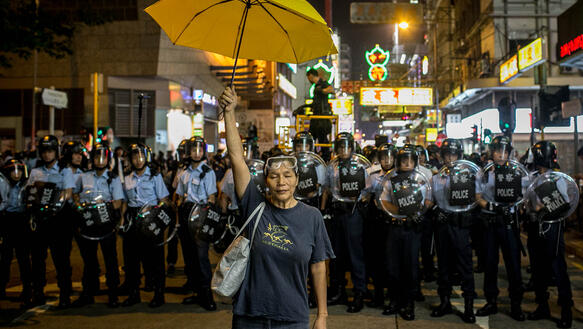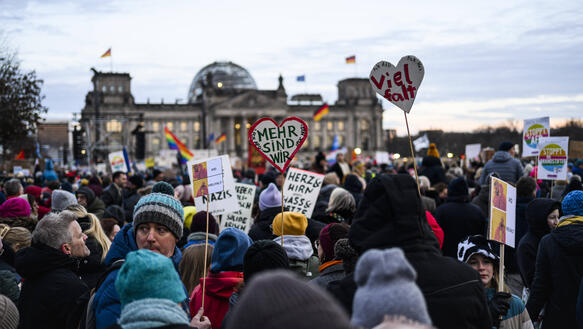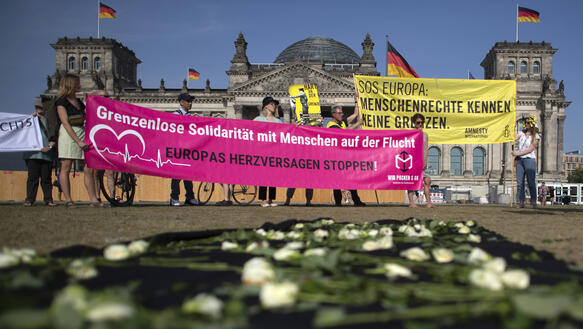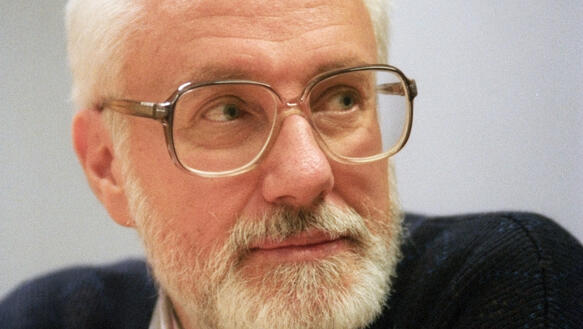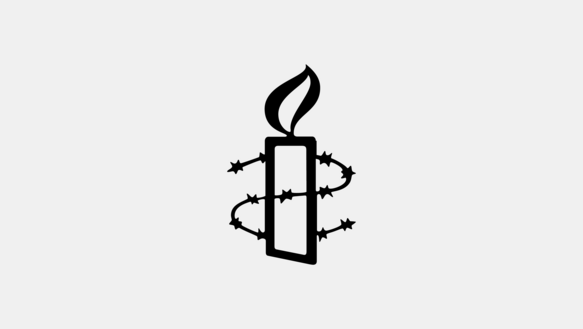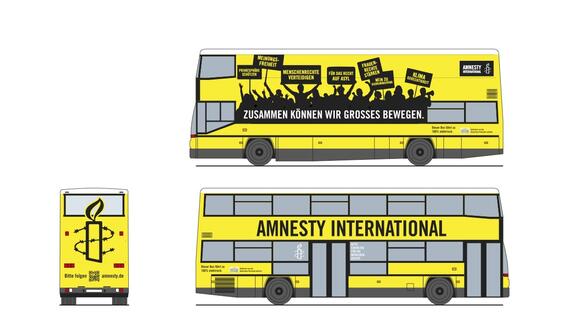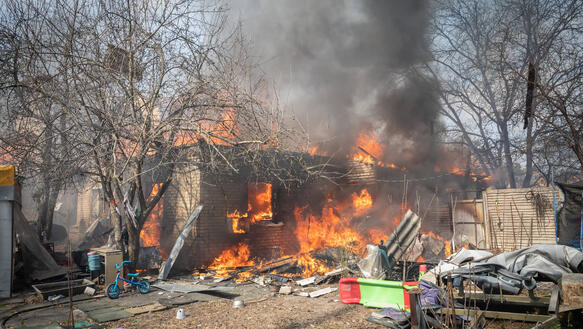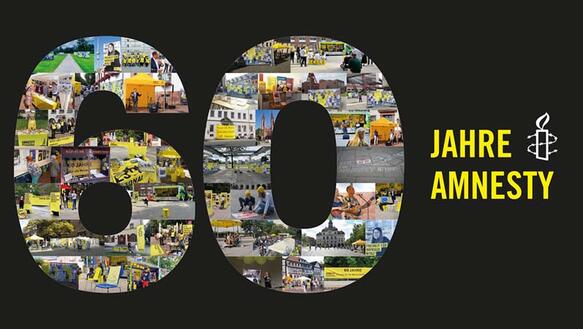DEINE SPENDE KANN LEBEN RETTEN!
Mit Amnesty kannst du dort helfen, wo es am dringendsten nötig ist.
DEINE SPENDE WIRKT!
"People will not be held back by fences!"

German Amnesty Director Selmin Çalışkan at the border between Slovenia and Croatia close to the town of Rigonce, November 2015.
© Ralf Rebmann
Many refugees currently on their way to Europe are travelling through the Western Balkans to get here. Following the example of other EU member states, the Slovenian authorities have now also erected razor wire fencing along their borders – with marked consequences for refugees seeking protection in Europe. Selmin Çalışkan visited the area to find out about the conditions at border crossings, in refugee camps and in an asylum-seekers’ reception centre, and to see for herself the work Amnesty International does on the ground.
Selmin Çalışkan has been Director of Amnesty Germany since March 2013.
What is a balloon but a thin stretch of rubber and a bit of air? And still, there are moments when such an unprepossessing item can have the most wonderful effect. It can bring a smile to children’s faces. Children who might have been on the move for months, fleeing their homes and suffering fear, violence, hunger and the cold. Last Wednesday, this is exactly what I witnessed at the train station in Dobova, Slovenia.
Together with my colleagues from Amnesty Slovenia, I was there to monitor how the authorities were handling the refugee situation. Dobova is only a few kilometres from the Croatian border. As of late, its train station has become a hub for refugees arriving from Croatia on their way to Austria and Germany.
Around midday, another train from Croatia pulled into the station. It was carrying refugees from Afghanistan, Pakistan, Iraq and Syria who had already come a very long way. They were tired, and some of them asked us which country they were in. I met refugees from Kundus who told me what it was like there after the Taliban attack.

Refugees at the train station in Dobova waiting for a train to the Austrian border.
© Ralf Rebmann
With the help of our interpreter, we were able to talk to a Kurdish man and his daughter from the Iraqi town of Shingal. They were fleeing from so-called "Islamic State" whose militants had abducted female members of their family and killed the brother of the man we were speaking to.
Red Cross workers supplied the new arrivals with water and food. They also had a large bag of balloons with them. It was only then that we realised how many children were on the train – they all scrambled to the windows for one of the balloons. With their hands and faces out of the windows, they waved at us with their colourful balloons.
Natasa Posel, the Director of Amnesty Slovenia, told me that they had lately seen significant improvement in the provision of services to refugees, including a refugee camp being set up Dobova-Livarna. It offers heated tents as well as mattresses and blankets for up to 2,500 refugees at a time. What had also eased the humanitarian situation according to Natasa was the controlled arrival of refugees by train from Croatia.
Several weeks ago, the situation was very different. There was no service provision for refugees at all and they had to sleep in a field near the border. Volunteers told us that Slovenian police officers had displayed aggressive behaviour towards refugees in the past, often hurling racist abuse at them.

Selmin Çalışkan (l.) with Slovenian Amnesty Director Natasa Posel at the train station in Dobova.
The most marked example of Slovenia’s desire to seal its borders is the razor-sharp fence in Rigonce near Dobova. The authorities call it a "physical barrier". In truth, however, it means that people will have to take ever more dangerous routes in order to reach a place of safety in Europe – because people will not be held back by fences. Villagers living in the area do not support the fence. They weren’t bothered by the presence of food containers right next to their local cemetery: "Why would we be? After all, it didn’t keep us from visiting our dead on November 1st."
At the moment, the Croatian-Slovenian border crossings are open. But what happens if Austria or even Germany decide to close their borders? And is this likely to happen? This was the question that came up again and again in the conversations I had and the interviews I conducted in Slovenia.
The Slovenian section of Amnesty International and their volunteers are therefore preparing for rising numbers of asylum-seekers in Slovenia. It is thanks to the commitment of Amnesty Slovenia and many more volunteer workers on the ground – UNHCR, Caritas, the Red Cross – that refugees in Slovenia are receiving humanitarian assistance and human compassion.
And as fate would have it, on that Wednesday at a tiny train station in Dobova, I bumped into an old friend of mine: Madeleine Rees, Secretary General of the Women's International League for Peace and Freedom. Like me, she wanted to find out more about the refugee situation, and in order to do so was travelling around Slovenia and Croatia with a delegation of the Nobel Women's Initiative. I was also able to exchange a few words with Shirin Ebadi about the difficult position women and children find themselves in on their way to safety.
It is difficult meeting people who don’t know whether they will reach their destination or whether the gates will be slammed shut at the last minute. And it is hard being acutely aware of one’s own privilege, one’s own safety, when faced with the plight of someone else – a person like you and me.
